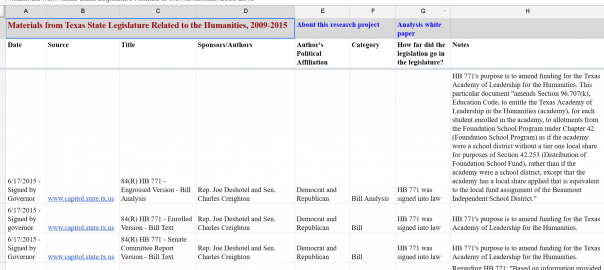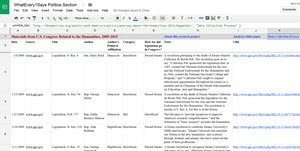Earlier in 2016, UCSB (University of California, Santa Barbara) Political Science major and English minor Austin Yack examined United States political discourse from 2009 to 2015 in the legislative and executive branches of the federal government and also the legislative branch of California (the state with the greatest population) to study how politicians talk about the humanities.
Now, soon after graduating , Austin has extended his study to the next two most populous states in the U. S.: Texas and Florida. In his new white paper, “The Humanities in the Eyes of Texas and Florida Politicians,” he studies the actions of the Texas and Florida state legislatures during 2009 to 2015 on the humanities.
One finding is that in these years politicians in Texas and Florida were more active in substantively boosting the humanities than their California peers, who primarily just issued symbolic “resolutions” recognizing the humanities.
Austin presents his results in his white paper and accompanying dataset.

